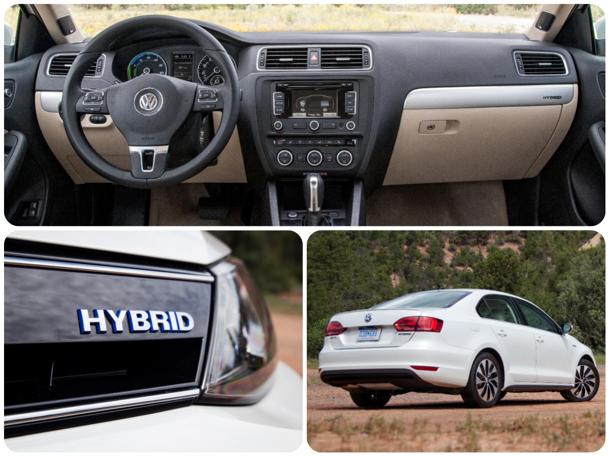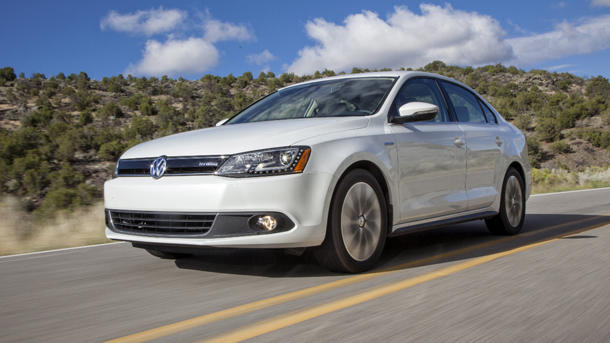On April 3, 1973, Motorola researcher Martin Cooper made the first call from a handheld mobile phone. The prototype weighed 2.5 lbs., and measured 9 inches long, 5 inches deep and 1.75 inches wide. This revolutionary phone had a talk time of just 30 minutes and took a whopping 10 hours to charge. Today, we'd call it a brick.
These old phones felt big, heavy and cumbersome — in much the same way as a hybrid vehicle does today. Manufacturers have struggled for a hybrid driving experience that engages, leaving you feeling compromised in order to achieve the desired benefits. And that was the same with the original bulky cell phones. But as we turned the corner into the 21st century, eventually, the mobile phone did indeed appear "normal."
When you think hybrid, you think Toyota Prius — a beige billboard showcasing the owner's bitter hatred for all things automotive. But hybrids have advanced. Audi won the Le Mans 24-hours with their R18 E-Tron hybrid racecar, Porsche have showcased the 918 hybrid supercar and Ferrari are about to follow suit with a hybrid replacement to the all-conquering Enzo. But while the cream of the crop has evidently figured out how to make hybrids fast and exciting, the sedan market is still littered with hybrids capable of educing its driver into a coma.
Volkswagen has promised the 2013 VW Jetta Hybrid will be different. It's a "no compromise, sporty" hybrid. But, when you consider the 229 lbs. the hybrid has gained compared with the 2.5L Jetta automatic, surely a compromise must be inevitable. But have VW engineers been able to move past the weight gain and create a hybrid compact sedan that actually feels like a car, and not a squidgy marshmallow blob on wheels?
 From the outset, the Jetta Hybrid looks remarkably Jetta like -- minus a custom black-enclosed grille, mini spoiler, custom wheels and a rear diffuser. Inside, the cabin remains comfortably pleasant, de-cluttered and spacious for a hybrid. Holding the steering wheel is like touching an infant Beluga whale -- its soft, suppleness is by far the cabins best feature.
From the outset, the Jetta Hybrid looks remarkably Jetta like -- minus a custom black-enclosed grille, mini spoiler, custom wheels and a rear diffuser. Inside, the cabin remains comfortably pleasant, de-cluttered and spacious for a hybrid. Holding the steering wheel is like touching an infant Beluga whale -- its soft, suppleness is by far the cabins best feature.
Pressing the start button coaxes the 27-hp electric motor to life, allowing you to accelerate gently for 1.2 miles -- up to 44 mph in E-mode -- in a deathly silent creep, making a hybrid the perfect car for teens attempting to sneak out of their parents driveway undetected at night.
Once you become a little less delicate with the throttle, the 150-hp 1.4L turbocharged engine fires up, making a combined 170 hp and 184 lb.-ft. of torque. Acceleration is prompt for a hybrid, managing a 0-60 mph sprint in 8.6 seconds, and the engine decouples between the electric motor and gas motor as surreptitiously as with our covert driveway stealth mission. A buttery smooth 7-speed DSG dual clutch automatic transmission is mated to the electric/gas concoction, and fuel efficiency is estimated at an impressive (albeit shy of the 50-mpg Prius) 45 mpg combined.
Entering the turns, braking feels a little unpredictable — par for the course with many braking systems trying to balance recapturing energy with stopping the car — but missing the lifelike feel of the new Ford Fusion Hybrid's pedal. The crossover between the regenerative braking and friction braking is a smidge too noticeable, making slow speed stopping somewhat jerky.
Handling, however, feels remarkably engaging. It does an admirable job of fooling you into believing you're sat behind the wheel of a regular Jetta, rather than the compromised stereotype of old.
But before you get too excited, the weight gain that occurs by adding a heavy electric motor and a bulging 222-volt lithium-ion battery (weighing 80 lbs.) is, unsurprisingly, noticeable. In hard cornering body roll kicks in, and the car feels slow in changing direction. It's like a tired heavyweight boxer, swinging wildly. It floats in a way that exudes potential, yet it's masked by excess fat.
Still, the Jetta Hybrid is suspiciously un-beige, and — regardless of its sluggishness -- invites you to corner harder and explore its prominent right hook. That's something that cannot be said for many (if any) of the Jetta Hybrid's competitors.
So, with the Jetta Hybrid offering a solid Prius alternative, a question stems regarding VW's rather tasty Jetta TDI. The 34-mpg combined turbodiesel munches around 21 percent of all Jetta sales. But will the inclusion of a far more efficient hybrid cause a feeding frenzy that will only dilute the success of the TDI?
VW expect only five percent of all Jetta sales will amass from the hybrid, and the fact is a hybrid buyer is unlikely to consider a smoky diesel as a legitimate economical alternative — making the reasoning for combining a diesel and hybrid in the same model lineup plausible and, more importantly, non cannibalistic.
Pricing starts at $24,995 for the base hybrid, ramping up to $31,180 for the SEL Premium. And while the base model offers leather seats as standard, venturing in excess of 30k grants you LED headlights, a Fender audio system, rearview camera and a tasty set of alloys.
The Jetta Hybrid behaves in a decidedly non-hybrid way. It could (almost) be perceived as normal. And while it is far from being groundbreaking like the original iPhone, it does feel like the hefty bricks of old are gone, leaving us to finally turn the corner into the 21st century.
Source: Yahoo!

No comments:
Post a Comment